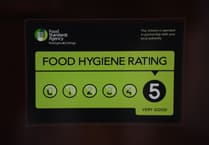Bath & North East Somerset Council is set out its budget plans last week with proposals for smart investment in new Council homes, new SEND (Special Educational Needs and Disability) provision, extra local transport schemes, and the new Fashion Museum.
The Council’s budget package, to be presented to cabinet on Thursday (8th February), follows a public consultation on proposals to close a £16.42m funding gap with additional income and savings as well as a Council Tax rise of 2.99% plus an additional 2% for Adult Social Care (making a total rise of 4.99%).
In the consultation, 40% of those who responded supported the Council’s proposals relating to the Council Tax rise, in preference to further budget reductions, and 31% partially supported the proposals, compared to 29% who did not support the rise.
The report recommends that the Council Tax rises be approved by Council and it also contains detailed proposals for the Council’s day-to-day spending for next year, and for balancing the budget in 2025/26. The reports also identify new and additional investment over the next five years to improve Bath and North East Somerset’s infrastructure, including housing and transport.
Councillor Mark Elliott, cabinet member for Resources, said: “It’s been a very challenging budget process this year but we are able not only to present a balanced budget for this coming year but also for 2025/26, which will provide stability and shows the work we have put into preparing a robust financial plan for the Council. Our focus has been on doing our very best to protect front-line services while continuing to improve people’s lives by investing in schemes that make a real difference and protecting services for the most vulnerable as much as possible. For example, across social care budgets an additional £9m is being allocated as growth in Children’s and Adult Services, including funding to meet increased demand for services, SEND services and home to school transport.
“We have listened carefully to feedback provided during the consultation process by third sector providers on the proposed savings in social care community contracts. We greatly value the services provided by our third sector partners, and whilst we will need to make savings in this area, we acknowledge that more time will be required to work with providers to make sure those savings do not cause further pressure on the statutory services the Council provides. We are therefore proposing to spread those savings in the adult services budget over two years. We also acknowledge that central government have announced that extra, one-off, funding will be available for social services for the next financial year. At the time of publishing the final budget proposal it has not been made clear to us how much, if any, extra money the Council will receive or what restrictions will be placed on it.
“Although there are some difficult decisions to be made on day-to-day spending due to increasing demand for our services and central government spending restrictions, we are proposing that new, carefully targeted, capital investments be made in residents’ priorities such as housing and transport. We also have been able to use income from our fantastic heritage assets such as the Roman Baths. Given the funding restrictions facing all Councils, though, we are also looking to generate additional income and make savings for the future. We are proposing to invest in delivering a new Fashion Museum which will contribute to the economic prosperity of the region. We’re also proposing a big investment in more homes that meet local needs so we can reduce future costs of temporary accommodation and expensive out-of-area placements.”
A paper on ‘New and emerging capital schemes’, to be presented to the cabinet as part of its budget reports, sets out plans for developing a model for delivery of Council housing. It highlights that an investment of £15m could, alongside additional funding from rents and government grants, generate funding to deliver a significant number of homes to meet local need.
An additional £20m of investment over the five-year period would also enable delivery of further supporting housing and temporary accommodation, which would be funded from savings from resulting reductions in out-of-area provision. £4m is also proposed to be allocated to a new SEND school. A separate report setting out recommendations for this to be at Charlton House, in Keynsham, following a review of the Council’s Community Resources Centres, is also presented to the cabinet on 8th February.
The proposals also highlight how innovative use of funding available to the Council could be used to benefit local communities, including:
Some of the money raised from the Clean Air Zone (CAZ) is proposed to be used for the Western Section of a new cycle and pedestrian route from Combe Road to St Martins Garden School, via Mulberry Park, including off-road sections and improved crossings. CAZ funding would also be used for local highway improvements, focusing on residents’ priorities such as pedestrian safety.
Community Infrastructure Levy (CIL) funding (which is raised from local developers to fund local facilities) is earmarked for additional GP provision in areas of housing growth, as well as for other community facilities in Radstock and Larkhall, for green infrastructure proposals across the area (including Bathscape, Somer Valley Rediscovered, Chew Valley Reconnected, Bath Riverline, Waterspace and Keynsham Memorial Park Wier) and for additional investment in High Street Renewal.
Also contributing to ensuring our High Streets remain vibrant and attractive, the Council has earmarked funding, alongside a West of England Combined Authority grant, to bring two long-term vacant units in Keynsham back into use.
The Council will also invest in the Council’s own commercial estate to further attract new shops and other businesses.
The budget proposals for 2024 to 2025 will be considered by cabinet on 8th February and Full Council on 20th February.



